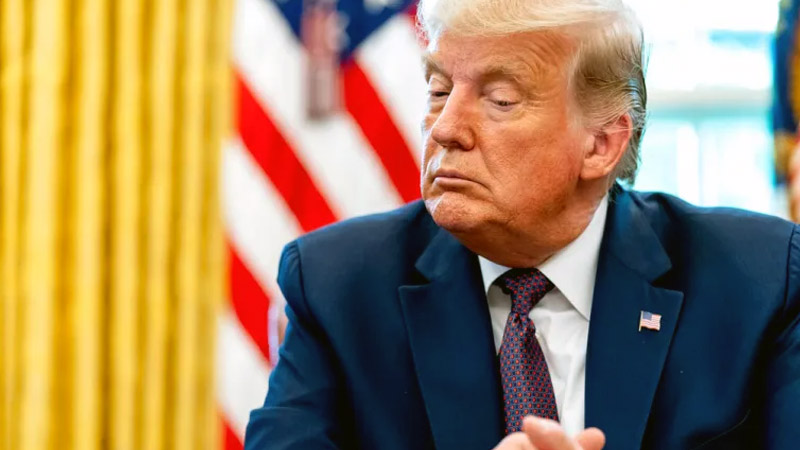“The Constitution Means Nothing to Him”: Critics Slam NYT Columnist for Downplaying Trump’s Power Remarks

Former President Donald Trump is leading the race to be the Republican candidate in the 2024 election [File: Andrew Harnik/AP Photo]
A New York Times columnist faced backlash after dismissing concerns that Donald Trump could attempt to extend his power beyond a second presidential term. Neil Vigdor’s Monday fact-check argued it would be “impossible” for Trump to stay in office after a second term due to constitutionally mandated limits.
Vigdor wrote that Trump “cannot run for re-election again,” referencing the 22nd Amendment’s two-term limit. The column followed Trump’s recent remarks to the House Republican Conference, where he suggested he could remain in power if they “figure something out.” While Trump’s campaign dismissed the statement as “a joke,” critics were quick to highlight the former president’s history of sidestepping constitutional norms.
Two former federal prosecutors, Joyce Vance and Jill Wine-Banks, criticized Vigdor’s analysis as naive, arguing it ignored Trump’s past constitutional violations and his willingness to test legal boundaries. “The Constitution also says he requires the ‘advise and consent’ of the Senate to approve his nominations,” Vance wrote on Blue Sky, referencing Trump’s team hinting at bypassing Senate confirmation for Cabinet appointments through recess appointments.
Joyce is right to be skeptical. Criminals find ways around inconvenient laws, and in Trump’s case, the Constitution. He violated the Emoluments Clause with no consequences. He’s getting away with violating criminal laws because of SCOTUS. But (continue to next)
— Jill Wine-Banks (@jillwine-banks.bsky.social) November 18, 2024 at 8:22 PM
[image or embed]
Jill Wine-Banks, renowned for her role in prosecuting the Watergate cases, echoed Vance’s concerns and pointed to Trump’s track record of disregarding constitutional restrictions. “Joyce is right to be skeptical. Criminals find ways around inconvenient laws, and in Trump’s case, the Constitution,” she posted on Blue Sky.
Wine-Banks cited Trump’s past actions, such as violating the Emoluments Clause, which prohibits federal officials from profiting from foreign or domestic governments, without facing the consequences. “He violated the Emoluments Clause with no consequences,” she stated. “He’s getting away with violating criminal laws because of SCOTUS.
But this is even worse because if he gets away with recess appointments, it destroys the foundation of our democracy.” The sharp critiques underline concerns among legal experts and observers that Trump’s past behavior demonstrates a willingness to exploit legal loopholes and push constitutional boundaries.
While the Times’ column may have intended to reassure readers about the constraints of the 22nd Amendment, it inadvertently underscored fears that Trump’s history of norm-breaking could lead to further erosion of democratic institutions. Whether Trump’s remarks were a joke or a signal remains uncertain, but his critics argue that dismissing the potential for constitutional subversion is dangerously shortsighted.


